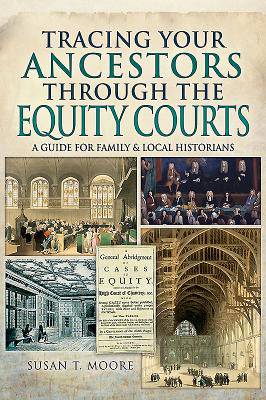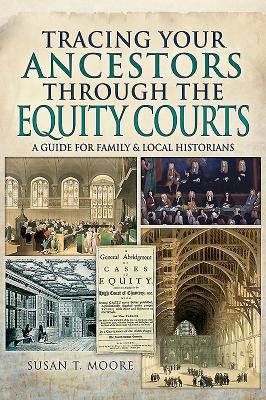
- Afhalen na 1 uur in een winkel met voorraad
- Gratis thuislevering in België vanaf € 30
- Ruim aanbod met 7 miljoen producten
- Afhalen na 1 uur in een winkel met voorraad
- Gratis thuislevering in België vanaf € 30
- Ruim aanbod met 7 miljoen producten
Zoeken
Tracing Your Ancestors Through the Equity Courts
A Guide for Family and Local Historians
Susan T Moore
€ 20,95
+ 41 punten
Omschrijving
The records of the Courts of Equity, which dealt with cases of fairness rather than law, are among the most detailed, extensive and revealing of all the legal documents historians can consult, yet they are often neglected. Susan Moore's expert introduction to them opens up this fascinating source to researchers who may not be familiar with them and dont know how to take advantage of them. As she traces the purpose, history and organization of the Courts of Equity from around 1500 to 1876, she demonstrates how varied their role was and how valuable their archives are for us today. She covers the Courts of Chancery, Exchequer, Star Chamber, Requests, Palatinates and Duchy of Lancaster in clear detail. Her work shows researchers why their records are worth searching, how to search them and how many jewels of information can be found in them. This introduction will be appreciated by local, social and family historians who are coming to these records for the first time and by those who already know of the records but have found them daunting.
Specificaties
Betrokkenen
- Auteur(s):
- Uitgeverij:
Inhoud
- Aantal bladzijden:
- 224
- Taal:
- Engels
- Reeks:
Eigenschappen
- Productcode (EAN):
- 9781473891661
- Verschijningsdatum:
- 4/01/2018
- Uitvoering:
- Paperback
- Formaat:
- Trade paperback (VS)
- Afmetingen:
- 168 mm x 234 mm
- Gewicht:
- 439 g

Alleen bij Standaard Boekhandel
+ 41 punten op je klantenkaart van Standaard Boekhandel
Beoordelingen
We publiceren alleen reviews die voldoen aan de voorwaarden voor reviews. Bekijk onze voorwaarden voor reviews.











